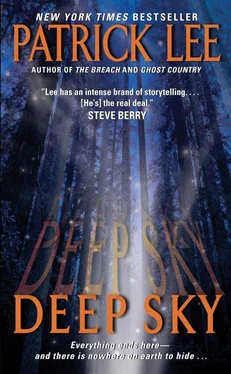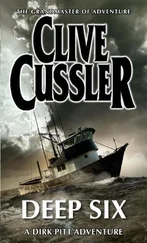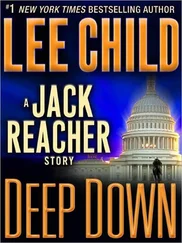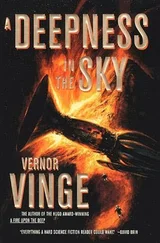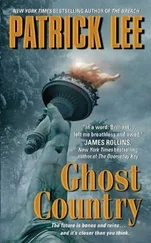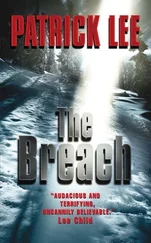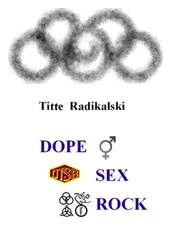Travis got up without coming to a stop. He snapped his gaze toward the Humvee and reacted to it. He went for a mix of surprise and relief, but didn’t let it linger more than half a second. Instead he advanced on the vehicle, his legs shaky, his hands waving frantically overhead as if to flag it down—as if he were too brain-addled to see it’d already stopped for him. He was fifteen feet away when the driver opened his door and got out. The guy with the deep voice. Had to be. Six-three and easily two hundred fifty pounds. MP5 submachine gun slung over his shoulder, right hand on its grip, finger outside the trigger well. Travis could see the weapon’s left side, and its three-setting fire selector switch, just like the ones he’d seen on the force two decades earlier. The settings were labeled S, E, and F, for German words that meant “safe,” “single-shot,” and “autofire.” This one was set to “safe”—for the moment. Travis glanced through the Humvee’s windshield and took in the other occupants. One more up front. Two in the back.
He took another visibly awkward step. Ten feet from the driver now. The guy was just drawing a breath to speak.
Travis recalled something else from his time as a cop—a training exercise called cone versus gun. The setup was simple. One man would play the cop and stand with an unloaded pistol holstered on his hip—safety on, holster strap in place. Another man would be the assailant, facing the cop from twenty feet away, an ice-cream cone in his hand to represent a knife.
From a standing start, the assailant would charge the cop. How close would he get before dying?
Most of the trainees had guessed ten feet: the guy would cover half the distance by the time the gun was leveled at him and clicking. Travis had felt generous and said he’d get within five.
Then the assailant had burst forward, and an instant later the room was full of low, surprised whistles.
The ice cream was mashed against the cop’s neck before he could pull the trigger even once.
Same result on the second run. And the third, and the tenth. Didn’t matter who played which part. Didn’t matter if one was a trainee and the other a hardened veteran. After a few iterations, certain truths became evident. First, twenty feet wasn’t that damn far, and the last third could be covered in a single, diving lunge, the body tipping forward and the arm shooting out in a movement that erased several feet at blink-speed. Second, there was a concentration issue. It took focus to snap loose a holster strap, draw a pistol, thumb off its safety, raise it, aim it, and fire. It took lots of focus, in fact, and focus was in short supply when someone was charging toward you like a runaway log truck. Your body was preconditioned to tense under those circumstances. Your hands wanted to go up in front of your face, not to your hip. You had to work against those instincts every time, even after you’d trained yourself to expect them. Even when the attacker was a friend with an ice-cream cone.
“No closer,” the driver said. His thumb went unconsciously to the selector switch.
Travis didn’t have a knife. Didn’t even have an ice-cream cone. He also didn’t have twenty feet to cross.
He charged.
It happened in less than three seconds, and it felt like less than three seconds. At no point did it seem to slow down. At times in Travis’s life, eruptions of violence had sometimes taken on special clarity. A simplicity made of goals and obstacles and means, playing out in a few beats of his pulse. He’d heard Paige put it in similar terms.
None of that happened here.
It was all motion and panic; flinching bodies and jerking limbs and the startled beginnings of shouts. Travis crossed the distance in a burst of momentum, got his left hand on the MP5’s barrel guard, balled up his right and slammed it into the big guy’s Adam’s apple with all his forward speed. The man’s free hand went to his throat, and his gun hand loosened, and Travis took his attention off the guy completely. Arms were moving inside the vehicle. Reaching for door handles. Reaching for weapons Travis couldn’t see. He knocked the driver’s hand away from the MP5, gripped the gun with both of his own, thumbed its selector to full-auto, and yanked it down away from the huge torso. The strap pulled tight, but there was enough play for what Travis had to do. He put the weapon’s barrel into the gap between the open driver’s door and its frame. Right at the front, above the hinge, head-level with all three men inside. Like an archer pointing a drawn arrow through a loophole in a fortress wall.
He aimed for the front passenger and pulled the trigger. Felt the cyclic, full-auto recoil as the thing roared. Saw the guy’s head come apart, and shoved the stock hard clockwise to spray the backseat, hitting both heads there probably five times each. He let go of the trigger and hauled the gun back out of the gap, its strap still tight around the big man—who’d recovered enough to reach for the weapon again. Travis pointed it straight at him and fired, and its last four rounds entered right below his jaw. The guy went limp and dropped where he stood, his weight on the strap tugging the gun out of Travis’s hands.
Silence, except the vehicle’s idling engine.
Travis looked up the length of Main Street. No sign of the other Humvees just yet.
He raised his eyes to the distant Raines house, just visible over the nearest shopfronts, and saw the three spotters up there going apeshit. Grabbing one another’s arms and pointing down toward the action. Drawing two-way radios and shouting into them.
Time to get going.
Travis turned and saw Paige and Bethany at the mouth of the alley. Paige looked only a little shaken. Bethany more so.
“Seconds are going to count,” Travis said.
Paige nodded, shoved Bethany forward and ran after her.
Travis opened the back door on the driver’s side and Bethany got in first, heedless of the bodies—all the blood was farther back, covering the rear windows and the storage area behind the seats. Paige climbed in after her, and by then Travis was at the wheel, slamming his own door and shoving the vehicle into drive. For half a second he considered reversing instead, backing up and taking the nearby cross street. Then he thought of the spotters up high again, on their radios, and knew it was pointless. There would be no hiding from the other Humvees. He floored the accelerator and the vehicle shot forward along Main, toward the street at the far end that led to Raines’s house.
“Get the guns off those guys in back,” Travis said.
“Already on it,” Paige said.
Travis reached with his right and unslung the front passenger’s MP5 from his shoulder. He set the weapon in his own lap and patted the guy’s pockets for extra magazines. He found two in a big pouch on his pant leg.
Three blocks from the end of Main now, doing sixty. A second later the first of the other Humvees appeared ahead. It rounded the corner Travis meant to take, at the end. Another followed half a vehicle length behind it. Then came four more. The whole procession advanced, roughly single-file, accelerating to meet him.
If these guys had had time to form a plan, they might’ve spread out like horsemen riding abreast. No way could Travis have rammed through that barrier; his vehicle weighed exactly as much as any one of theirs. But in the few seconds available, as the closing distance shrank toward zero, the column simply stayed in a straight line, bearing toward Travis in an impromptu game of chicken.
At least maybe it looked like that from their point of view.
Travis jerked the wheel to the right at the last possible instant, veering past the leader. As he did, he saw the rest of the line begin to destabilize, the Humvees braking or jogging to one side or another—little movements that betrayed their drivers’ confusion. But Travis was passing the formation almost too quickly to notice those things—or to care. Sixty miles per hour, he’d read somewhere, was just under ninety feet per second. With these vehicles moving the other way at the same speed, he was passing them at closer to one hundred eighty feet per second. In hardly more than a second they were all behind him, just shapes in his side mirror, stopping and turning and trying not to slam into each other like cops in an old movie.
Читать дальше
